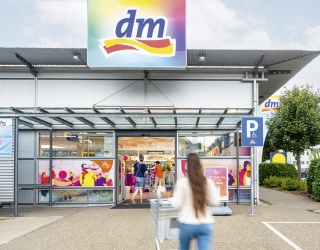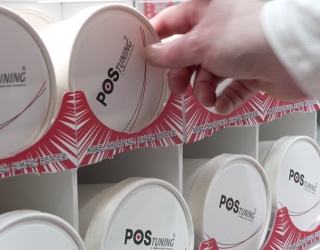PunchTab, the leading omni-channel engagement and insights platform, released a new study on Millennial purchase behavior among fashion brands and retailers. More than 1,200 Millennials participated in the study, which reveals the key buying drivers that lead them from consideration to purchase, their perception of brand loyalty programs, and the most popular loyalty programs among the age group.
External Influences Shape Millennial Awareness of Fashion Brands
PunchTab's new study sheds light on how the opinions and experiences of others, expressed in an offline conversation, an online review, or via social media, are key drivers in how Millennials learn about, and form their impression of fashion brands and retailers. Highlights from the study include:
60 per cent of Millennial Women learn about fashion brands from direct contact with others wearing the brand or word-of-mouth. The number is slightly lower for Millennial Men (49 per cent). 34 per cent of Millennial Women and 29 per cent of Millennial Men read online articles to learn about new brands. 20 per cent of Millennial Women and 10 per cent of Millennial Men learn about brands via social channels.
Brands and retailers play a larger role in purchase consideration
PunchTab's study also shows a significant shift in brand and retailer perception by Millennials, once they become aware of the brand. As they begin to seek product information, nearly 80 percent of Millennials turn to online shopping sites first, followed by friends and family (70 per cent), and brand websites (58 per cent). The top methods for Millennials to share recommendations about fashion brands include friends and family (62 per cent), Facebook (45 per cent), online shopping sites (35 per cent) and Pinterest (18 per cent).
Loyalty programs affect millennial genders differently and engagement varies
The PunchTab study shows that incentives significantly alter the way Millennials engage with loyalty programs among fashion brands. In fact, a majority (63 per cent) of Millennials would join a consumer loyalty program if given incentives. If those incentives were taken away, only 35 percent of Millennials would join a loyalty program.
Other findings include:
- 74 per cent of Millennial Women are currently members of one of more fashion-related loyalty programs, while only 52 per cent of Millennial Men are members.
- 53 per cent of Millennials would follow a store or brand on Twitter if incentives were given. Without incentives, the number drops to 19 per cent.
- 60 per cent of Millennials would answer polls and surveys if given incentives and only 29 per cent would do so without them.
- 51 per centof Millennials rated exclusive access to events and products as the most desirable type of experience rewards.
The Top Loyalty Programs, Engagement Influencers and Detractors
The new PunchTab report also details the most popular loyalty programs for Millennials, which points to differences between genders. For Millennial Men, the most popular loyalty programs include Kohl's (27 per cent), Dick's Sporting Goods (23 per cent), Target (22 per cent), and Macy's (16 per cent). The top loyalty programs for Millennial women include Victoria's Secret (33 per cent), Kohl's (24 per cent), Target (23 per cent), American Eagle (21 per cent) and Gap brands (21 per cent).
Taking a closer look at what factors encourage Millennial participation in loyalty programs, PunchTab found that the top reasons are ease of participation and receiving value from the program. Top detractors for their signing up for programs include lack of value and the fear of being spammed by brands.
In addition, 75 per cent of Millennial Women and 64 per cent of Millennial Men who are members of at least one loyalty program indicated loyalty programs were at least somewhat of a consideration in where they buy their clothes.
"Marketing to Millennials is a complex endeavor," said Angela Sanfilippo, CMO of PunchTab. "PunchTab's data shows what many have suspected -- growing Millennial apathy towards traditional marketing and a distrust of brands is creating a new challenge for marketers looking to engage this powerful demographic. What we're finding however, is that Millennials continue to embrace incentives and loyalty programs, as long as they're tailored to their lifestyle and interests, and offer rewards for actions in a timely manner. As a digitally savvy group that wields more than $600 billion in spending power each year, understanding how to tap into the Millennial market and their purchase triggers is a must."
Source: PunchTab




